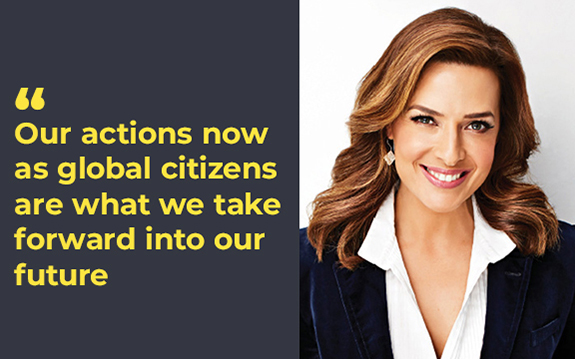Opinion: It’s time to strengthen our connection to others

In Summary
- An opinion piece by Helen Kapalos, Swinburne’s inaugural Vice-Chancellor’s Fellow for Multicultural Engagement.
One thing that has characterised the COVID-19 outbreak is its ubiquitous grip on all of us. We are equally constricted by it because it permeates uncertainty. It is an act of history, which has brought many of us together to fight a common enemy. It is also a time when leadership counts the most. We are seeking solutions and breakthroughs, not fear and division.
But fear sells, and it spreads viscerally among the masses when we are seeking to direct our frustration into something or someone else. It's why phrases like the 'China flu' were so destructive in the early days because it gave dangerous leaders a platform to name the wrong enemy; a culture.
It has now resulted in the resurrection of Anti-Asian sentiment across the globe and in our local environments. Victoria has long been hailed as one of the most successful examples of multiculturalism in the world. But in recent weeks it has allowed an old and ugly era back into society, the demonisation of Australians of Asian descent. Are we really back here again? It seems so, and the examples and incidents are growing.
The recent unprovoked attack on two international students in Melbourne's Central Business District was disturbing footage, full of violence and hateful actions against defenceless victims. But it was what was behind those actions that hurt the most; people attacked because of their cultural heritage.
The Human Rights Commission has experienced a surge in complaints from members of the Asian community being attacked because of a perceived link to the coronavirus outbreak. But there have also been people prepared to stand up to hate, recognising we all have the equal right to belong to Australian society.
Some are taking advantage of a crisis that affects all of us to spread another virus; the fear and loathing of our fellow man.
What we know to be true about this virus, is that it has no cultural identity. It does not discriminate along racial, political, or economic lines. It infects the young and the old, the rich and the poor, and it certainly does not halt across national boundaries.
To use politics to sideline science is to miss the point entirely, and humanitarian outreach should be our core mission now. Fear will only amplify a misguided response, and thwart the potential healing effect of a collective and unified effort.
The German philosopher Hegel once said that the only thing we learn from history is that we learn nothing from history. But we always have a choice; a choice between fear and unity, co-operation and isolation, and ultimately between love and hate.
Every racist action in our society undermines our reputation as a safe, welcoming and inclusive society for people from every cultural, religious and linguistic background. Diversity is our richest asset, because people are our richest asset. Not power, politics, money or status.
We are experiencing a great leveller, which for the first time in our living history is grouping us all as one. A common humanity that is asking us to look out for one another, not just in the best of times, but especially in the worst of times. Our actions now as global citizens are what we take forward into our future. Let that future acknowledge our shared mission and humanity.
The power of collective goodwill will go a lot further in our recovery efforts. It is a time to strengthen our connections to others, to forge our social glue, and our social capital. This is our most important defence against this disaster and will also be our most defining response.

